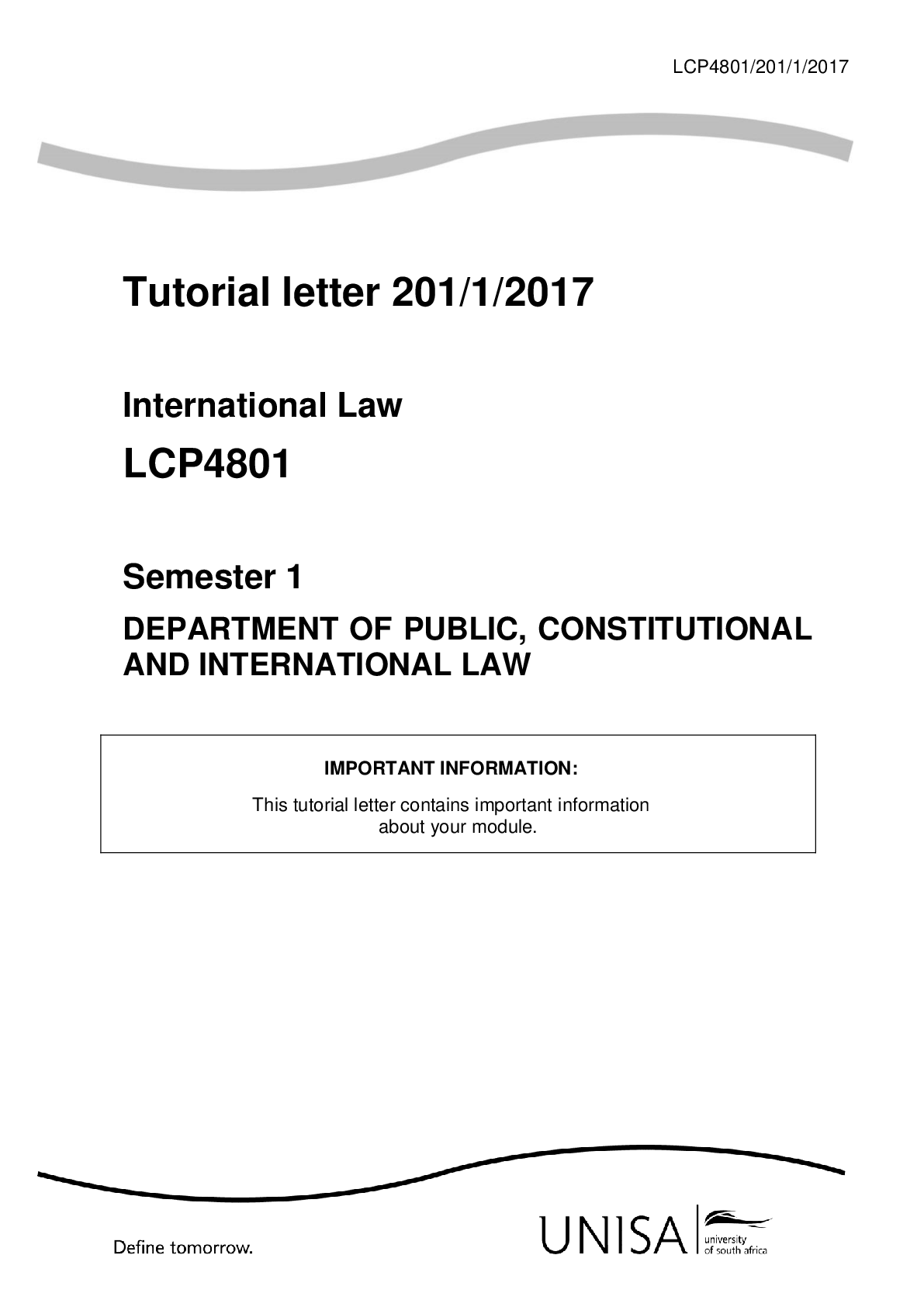Tutorial letter 201/1/2017 International Law LCP4801 Semester 1
Course
Philosophy
Subject
Chemistry
Category
Study Guide
Pages
11
Uploaded By
ATIPROS
Preview 4 out of 11 Pages


Download all 11 pages for $ 7.00
Reviews (0)
$7.00
